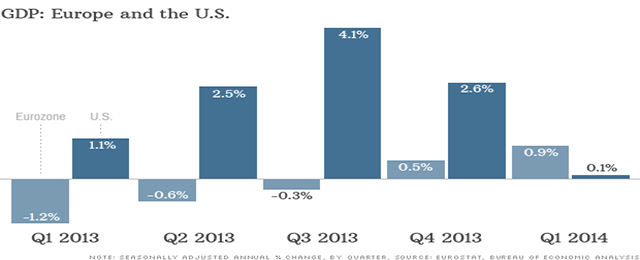It’s the price to pay for real adjustment. A very high one by all standards. The forthcoming elections for the European Parliament will show the extent of people’s disaffection and anger at the appalling consequences of widespread austerity. The mainstream political parties may gauge their dim prospects as a temporary setback, fuelled by voters’ tendency to consider these distant polls as a pretext for punishing alike ruling governments and those earlier in office.
They may be right. Yet, the danger extremists might enlarge their foothold will spark serious spill-over effects. Their free ride against Brussels reflects a far-reaching disenchantment at common values embraced up to now by the European citizens. Failure to provide decent living standards is weighing large on the sentiment that any economic recovery will only benefit the well-off. Thus, even growth is no longer regarded as a heal-all remedy.
The crisis has utterly crashed confidence in the social model the EU has rested upon from its setting-up. It has melted down faith in the common house, regarded with deep mistrust and contempt. Ordinary people no longer believe that Europe can ensure their welfare and future. Rather, they look at it as a threat for their well-being. Austerity is not the only one to blame. A growing divergence in wealth levels, no longer subdued by a safety net, is wreaking havoc on social cohesion. Not only the poor are poorer than before.
They also seem more deprived than ever. No wonder previous faith in Europe is rapidly dwindling.






Be the first to comment on "Low growth looms over Europe"